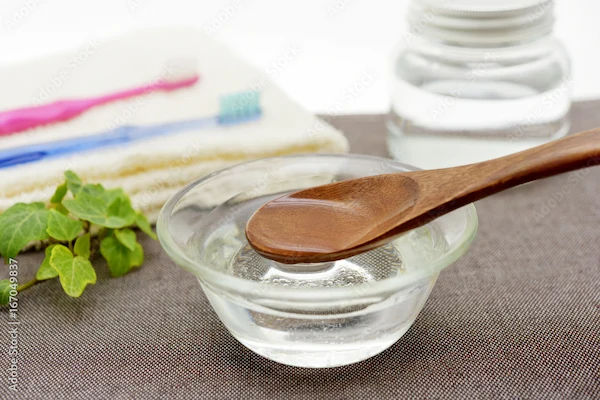How To Reduce Mouth Ulcers?
Discover effective ways to reduce mouth ulcers with natural remedies, dietary changes, and medical treatments. Learn its common symptoms, prevention strategies and when to seek professional care.

Written by
Last updated on 3rd Jul, 2025
Mouth ulcers are open sores that develop inside the mouth, gums and lips. The ulcers may be large or small and of varying degrees of severity. Aphthous ulcers (painful canker sores), herpetic ulcers (contagious clusters) and traumatic ulcers (caused by irritation or injury) are all mouth ulcers.
Ulcers are caused by vitamin deficiency, stress, food sensitivities, oral trauma and other underlying health conditions such as celiac and Crohn’s disease. Knowing these triggers can assist in prevention and management. To learn more, keep reading about how to reduce mouth ulcers.
Common Symptoms of Mouth Ulcers
Mouth ulcers can present with different symptoms depending on the cause, but they usually consist of:
Yellow, white, or red painful lesions
In the mouth, sores on the lips, inside the cheeks and the tongue
Redness in surrounding areas of the sores
Pain increases when eating, drinking, or speaking
Unless they are caused by an infection like hand, foot, and mouth disease, mouth ulcers do not tend to spread. Mouth ulcers are divided into two types, the most common of which are canker sores. Three main categories of canker sores include minor, major, and herpetiform.
Minor Canker Sore: These ulcers are less than 5 mm in diameter, oval or round with sharp edges, and minor canker sores. Typically, they heal in 1 to 2 weeks and leave no scars.
Major Canker Sore: They are much larger and deeper than minor canker sores, often more than 10 mm in size. Healing takes weeks or even months and their edges are uneven. Very severe canker sores may leave permanent scars.
Herpetiform Canker Sore: Herpetiform canker sores are clusters of small sores, generally on the tongue. They can merge into larger ones and have uneven edges. Usually, they heal without scarring in a month. They look like herpes sores, which is why they’re called herpetiform, but they're not caused by herpes infections.
Differentiating Mouth Ulcers from Other Oral Issues
Mouth ulcers can be mistaken for other oral conditions like cold sores, oral thrush, or gum infections. Understanding their unique characteristics helps in accurate identification and proper treatment.
| Condition | Characteristics | Contagious | Treatment |
| Mouth Ulcers | Small, round sores inside the mouth with a white or yellow centre and red border. Painful but not itchy. | No | Topical gels, home remedies, and dietary adjustments |
| Cold Sores (Herpes Simplex Virus) | Fluid-filled blisters around the lips or outside the mouth are often accompanied by a burning sensation. | Yes | Antiviral medications, topical creams |
| Oral Thrush | White, creamy patches on the tongue and inner cheeks, sometimes with a burning sensation. | No | Antifungal treatments, maintaining oral hygiene |
| Leukoplakia | Thick, white patches on the tongue or gums that cannot be scraped off. Often painless. | No | Medical consultation, biopsy if needed |
Natural and Home Remedies for Mouth Ulcer
Regular mouth ulcers heal by themselves without medication. People struggling with painful mouth ulcers can use some home remedies to eliminate discomfort and assist with recovery. These include:
Apply baking soda as a topical treatment to protect the ulcer.
Place ice directly on the ulcer or use a damp tea bag to apply relief.
People with specific vitamin B9, folate, vitamin B12, zinc, and iron deficiencies should take supplements for added nutrients.
Trying natural remedies such as echinacea, myrrh, and liquorice root.
Honey naturally fights bacteria and supports skin healing in ulcer cases.
The antibacterial benefits of coconut oil during oil pulling help injuries heal faster.
1. Dietary Changes to Promote Healing
A well-balanced diet promotes proper healing better than any other factor.
Include Vitamin-Rich Foods: Green leafy vegetables, dairy, and nuts speed up healing processes better.
Increase Hydration: Drinking enough water keeps the mouth and throat moist, which helps prevent discomfort.
Avoid Trigger Foods: Limit spicy, acidic and salty foods that make ulcer conditions worse.
2. Best Practices for Oral Hygiene to Prevent and Heal Ulcers
Proper oral routines stop harmful bacteria from entering the body.
Choose a soft-bristled toothbrush for gentle brushing to protect damaged tissue.
Use either a saltwater-baking soda rinse or a steroid mouthwash for cleaning.
Schedule regular dental appointments to detect problems before severity.
Over-the-Counter Treatments to Reduce Mouth Ulcers
Over-the-counter medicines work as a simple solution to treat mouth ulcers immediately. These medications come with pain relief while fighting swelling and enhancing recovery. Here are typical OTC remedies available for treatment:
1. Common Gels, Creams, and Rinses
Several non-prescription treatments provide relief:
Oral gels and creams: Containing benzocaine or lidocaine helps numb the area.
Antiseptic mouth rinses: Chlorhexidine-based oral antiseptic rinse protects against bacterial infections.
Hydrogen peroxide solution: A diluted hydrogen peroxide solution removes germs and other particles from the mouth ulcer.
2. When to Consider Medical Advice or Prescription Treatments
Medical attention is needed when oral sores become more severe or do not heal properly. A healthcare professional may recommend:
Corticosteroid ointments like triamcinolone are used for severe inflammation.
Antiviral drugs in case a virus triggers the ulcer.
Blood tests identify potential dietary problems or medical conditions
Identify Potential Medical Conditions
Vitamin and Mineral Deficiencies Causing Mouth Ulcers
Low levels of specific vitamins and minerals may create the conditions that trigger mouth ulcers. These are the significant nutrient levels that affect mouth ulcers:
Iron Deficiency: The body needs iron to make enough haemoglobin, which transports oxygen through the system. Insufficient iron weakens the immune system and makes tissue healing more difficult, which causes a continued cycle of mouth ulcer development.
Vitamin B12 Deficiency: The body needs vitamin B12 to produce red blood cells and keep nerves working properly. It also depends on this vitamin to keep oral mucous membranes healthy, yet low levels produce painful mouth ulcers.
Folic Acid (Vitamin B9) Deficiency: Folic acid as vitamin B9 promotes new DNA replication while repairing cell damage. A reduction in cell regeneration capability leads to mouth sores.
Zinc Deficiency: Zinc helps protect the immune system and assists in healing oral wounds. Body infections become more likely, while mouth ulcer recovery takes longer with low zinc levels.
Vitamin C Deficiency: Vitamin C assists the body make collagen for wound healing. Low amounts of nutrients weaken oral tissues and boost the chance of developing painful sores.
Calcium Deficiency: Calcium is important for maintaining healthy teeth and bones. A deficiency can affect oral health and contribute to the development of mouth ulcers.
Lifestyle Changes and Stress Management
High levels of stress reduce the body's defence system and boost the chance of developing mouth ulcers. Anxiety and hormonal changes contribute to creating mouth ulcers. The following methods help people manage their stress better for fast recovery:
Practising meditation and deep breathing techniques promote relaxation.
Regular physical exercise boosts the entire immune system.
Quality sleep helps the body heal and lowers anxiety levels.
The measures lower the risk of mouth ulcers while reducing the chances of developing other medical issues.
Medical Treatments and When to See a Doctor
Seek medical advice on noticing these symptoms with mouth ulcers:
Unusually large mouth sores
One or more new mouth sores start to develop while previous sores are not fully healed
Sores that last longer than three weeks
Sores appear without pain
Sores that spread to the lips
Standard OTC medicine and natural remedies do not help manage the discomfort
Extreme trouble consuming food and liquids
Experience severe stomach problems and fever at the same time as developing mouth sores
People receive treatment options through medical care, including:
Topical corticosteroids to reduce inflammation.
Antibiotic treatments for secondary bacterial infections.
High-power laser treatment helps treat persistent mouth ulcer problems.
Preventive Measures To Reduce Mouth Ulcers
Preventing mouth ulcers involves lifestyle and dietary modifications:
Maintain a nutrient-rich diet to prevent deficiencies.
Avoid excessive consumption of spicy and acidic foods.
Stay hydrated to promote overall oral health.
Use mild, non-irritating toothpaste.
Maintain good oral hygiene practices.
Schedule regular dental check-ups for early issue detection.
Conclusion
Mouth ulcers can be managed through diet, stress management, and good oral hygiene. Natural remedies and lifestyle changes help reduce discomfort and recurrence. However, chronic or severe ulcers may signal underlying health issues that need medical attention. A holistic approach is essential for long-term relief.
Consult Top General Physicians
Consult Top General Physicians

Dr. Swathi Reddy Perugu
General Physician/ Internal Medicine Specialist
7 Years • MBBS, MD (General Medicine)
Hyderabad
Health plus, Hyderabad

Dr. Mohamed Azeem
General Physician/ Internal Medicine Specialist
2 Years • MBBS,MD(Internal Medicine) CCEBDM
Karaikudi
Apollo Hospitals Karaikudi, Karaikudi

Dr. Thirupathy K S
General Physician/ Internal Medicine Specialist
11 Years • MD
Karaikudi
Apollo Hospitals Karaikudi, Karaikudi
(75+ Patients)

Dr. Nirmal Mathew Alex
General Physician/ Internal Medicine Specialist
17 Years • MBBS, MD(general medicine)
Angamaly
Apollo Hospitals Karukutty, Angamaly
(50+ Patients)

Dr Bhumika Lalwani
General Surgeon
4 Years • MBBS MS
Bengaluru
PRESTIGE SHANTHINIKETAN - SOCIETY CLINIC, Bengaluru



